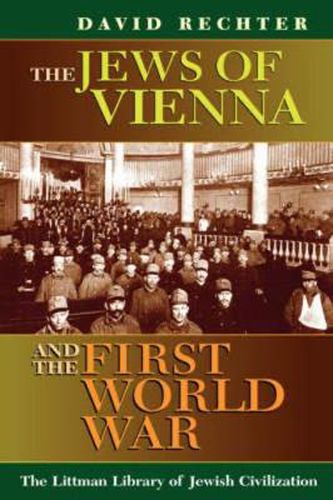Readings Newsletter
Become a Readings Member to make your shopping experience even easier.
Sign in or sign up for free!
You’re not far away from qualifying for FREE standard shipping within Australia
You’ve qualified for FREE standard shipping within Australia
The cart is loading…






The First World War marked the final chapter in the history of Habsburg Viennese Jewry. In this book, the first study of Viennese Jews in this period, David Rechter explores the community’s crises of ideology and identity during the traumatic war years. The book is also a study of modern Jewish politics. Viennese and Austrian Jewish political culture was a unique amalgam, combining the nationalism and radicalism of eastern Europe with the liberalism of the west. During the war, Zionism emerged the victor. The Jewish experience resembled that of other minorities in central and eastern Europe in this period, where ideologies of nationalism and ethnic self-determination became the prevailing norm. Despite this political transformation, Jewish world-views-whether liberal, nationalist, or Orthodox-survived the war remarkably intact. In analysing how Viennese Jews made the difficult transition from the Habsburg empire to the Austrian Republic, David Rechter offers a case study of Jewish politics and society in the crucible of war and brings to light an unexamined episode of modern Jewish history.
$9.00 standard shipping within Australia
FREE standard shipping within Australia for orders over $100.00
Express & International shipping calculated at checkout
The First World War marked the final chapter in the history of Habsburg Viennese Jewry. In this book, the first study of Viennese Jews in this period, David Rechter explores the community’s crises of ideology and identity during the traumatic war years. The book is also a study of modern Jewish politics. Viennese and Austrian Jewish political culture was a unique amalgam, combining the nationalism and radicalism of eastern Europe with the liberalism of the west. During the war, Zionism emerged the victor. The Jewish experience resembled that of other minorities in central and eastern Europe in this period, where ideologies of nationalism and ethnic self-determination became the prevailing norm. Despite this political transformation, Jewish world-views-whether liberal, nationalist, or Orthodox-survived the war remarkably intact. In analysing how Viennese Jews made the difficult transition from the Habsburg empire to the Austrian Republic, David Rechter offers a case study of Jewish politics and society in the crucible of war and brings to light an unexamined episode of modern Jewish history.